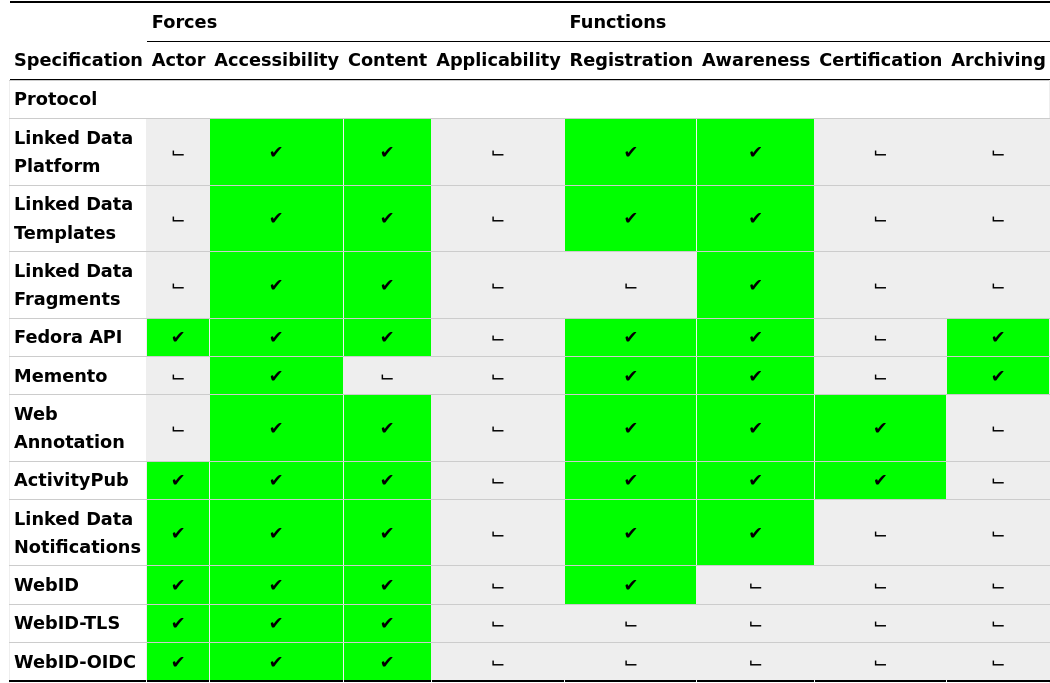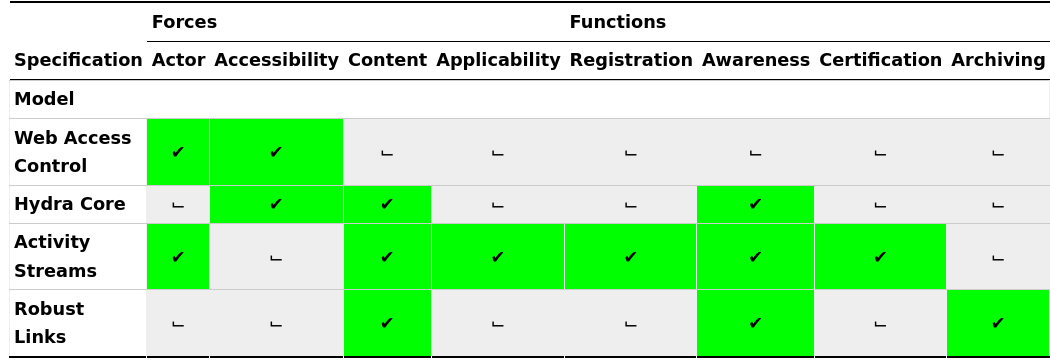Inherently Social, Decentralised, and for Everyone
Inherently Social, Decentralised, and for Everyone
SWIB-2023, Berlin, 2023-09-12, #swib23 (openbiblio, mastodon)
 Sarven Capadisli
https://csarven.ca/#i
@csarven
Sarven Capadisli
https://csarven.ca/#i
@csarven
Autonomy & Universal Access
Self-publishing
self publishing entails that an actor can register identifiers for their content, shape and store data where they have access to, set access control[s], and use preferred applications to achieve them.
Web; a social machine
anyone being (technically) allowed to say anything about anything
Degree of control for identifiers, data, and applications
W3C Linked Data Notifications design principles
Data on the Web should not be locked in to particular systems or be only readable by the applications which created it. Users should be free to switch between applications and share data between them.
Solid
The aims of the Solid project are in line with those of the Web itself: empowerment towards
an equitable, informed and interconnected society. Solid adds to existing Web standards to realise a space where individuals can maintain their autonomy, control their data and privacy, and choose applications and services to fulfil their needs.
LOD Cloud Social Networking
Why not both?
| Solid Protocol | ActivityPub | |
|---|---|---|
| Identifiers | URI owner | Implementation specific |
| Data | Personal | Social objects |
| Applications | Domain-centric | Social activity-centric |
| Protocols | Client-Server, .. | Client-Server, Server-Server |
| Authentication | Solid-OIDC, HttpSig* | Implementation specific |
| Authorization | WAC, ACP | Implementation specific |
| Notifications | LDN, WebSockets | LDN* |
Containers and Collections
- Container
A collection of [..] resources that responds to client requests for creation, modification, and/or enumeration of its linked members and documents [..].
- Storage
[..A] space of URIs that affords agents controlled access to resources.
- Inbox
An [..] endpoint to which notifications are sent or from which they are consumed.
- Outbox
[A] stream contain[ing] activities the user has published.
Compatibility 🤷🏽 Interoperability
Standards are like wine 🍷
Standards are like wine: some will age well, and others spoil.
— Henry Story
Adoption in the wild takes time and influenced by many variables.
- Standards evolve;
- shaped by cooperation
- adherence to principles (process, consensus, transparency, balance, openness);
- collective empowerment;
- availability;
- voluntary adoption.
What Can Internet Standards Do?
- Bolster Legitimacy
- Focus Discussion of Centralization
- Target Proprietary Functions
- Enable Switching
- Control Delegation of Power
- Enforce Boundaries
- Consider Extensibility Carefully
Social Implications
- How can harassment and abuse be prevented or handled?
- How would moderation or civil discourse work?
- How can a resource prohibit or consent to be annotated at fine granularity?
- How can the conditions to annotate and notify be indicated and monitored?
- How can a resource’s annotation policy and rules be respected?
- What may be the conditions to associate different identities?
- How can domain expertise be factored in?
Identity and Profiles
Circumstances under which profiles are used or shared:
- Communication and use of multiple profiles for different purposes.
- Connectivity of multiple profiles and cross-context recognition.
- Cascade of profile information.
- Persistence and evolution of profiles.
- Anonymous and pseudonymous profiles.
- Self-controlled and third-party-controlled identities.
- Information for the purpose of verification, authentication, authorization purposes.
- Compilation of preferences, choices, activities and interactions of an agent.
- Social graph for different kinds of relationships between agents.
- Factors specific to physical, physiological, genetic, mental, economic, cultural, social, or behavioural identity.
Interplay of Profiles, Articles, Annotations, and Notifications
Scientific Communication
- Forces
- Actor
- Content
- Accessibility
- Applicability
- Functions
- Registration
- Awareness
- Certification
- Archiving
An Ocean of Standards 🌊
.., Activity Vocabulary, ActivityPub, Authorization Capabilities for Linked Data, Data Privacy Vocabulary, Event Notifications in Value-Adding Networks, Fedora API Specification 1.0, Linked Data Platform, Linked Data Notifications, Memento, Open Digital Rights Language, Solid Notifications Protocol, Solid Protocol, The Cognitive Characteristics Ontology, The PROV Ontology, vCard Ontology, Web Access Control, Web Annotation Data Model, ..
Forces and Functions in Specifications


What Role Could Libraries Play? 🤔
- Share use cases.
- Propose and assess solutions, e.g., moderation, specification extensions.
- Highlight emerging patterns and share implementation experience.
- Identify lacking standards or gaps in standardisation.
- Host storage/nodes for public good.
- ..
- What do you think?
Social and Technical Decisions
But.. it is a privilege to have the opportunity to show up.
NIH 🙈 🙉 🙊 FUD